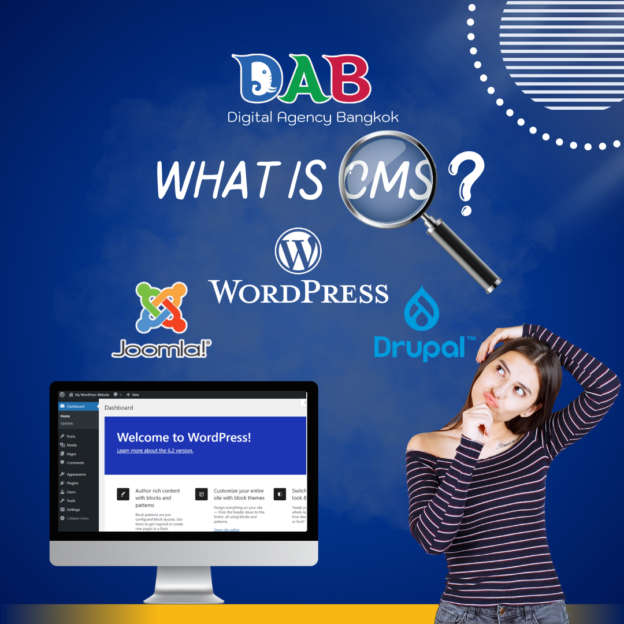What is a Content Management System or CMS?

What is a Content Management System or CMS?
CMS or Content Management System is a system for creating websites that is more convenient and faster. Its main advantage is that it does not require any knowledge of coding to create a website. Its advantages are that it is easy to customize, supports SEO, and often has additional plug-ins such as WordPress and Joomla, which are suitable for a variety of websites. If you choose the right CMS, it will help you manage your website more easily, and CMS is suitable for both personal and business use.
Main functions of Content Management System (CMS)
1. Content creation and management
-
- Users can easily create, edit and delete content on a website without having to know how to code.
- Supports adding various types of content, such as text, images, videos and documents.
2. Multilingual support
-
- The function of creating a multilingual website allows the website to support visitors from many countries and many languages.
3. User management
-
- The CMS system can define roles and user rights, such as administrators (Admin), writers (Writer) or general users (Subscriber).
- It makes it easier to manage users and access rights.
4. Track work
-
- There is a function to track work from start to finish, whether it is writing, editing, checking, promoting and publishing.
- Content can be updated regularly because there is a good content organization system. The content on the website can be easily accessed.
5. SEO management
-
- There are tools to help users You can customize your website content to be more suitable for search engines (such as Google)
- Such as setting URLs, using keywords, setting metadata, and creating a sitemap
Advantages of Using Content Management System or CMS
- Easy to use : Anyone can use it. No need to have knowledge of coding. Can create, edit and manage content easily.
- Has additional features that help to work in many ways : Some features can be downloaded for free. No cost.
- Allows multiple users to access : Allows to manage content simultaneously. Collaborate and work together systematically. Makes website creation and content management fast.
- High security : Has features and add-ons that help with security. And some systems may have a specific security team. For example, CMS Hub has a 24-hour security team.
Why are people still using non-CMS websites?
Although using a CMS system has many advantages, many people still choose not to use it for the following reasons:
- Customization limitations : CMS has limitations in terms of specific customization or creating special functions that require specific code. If you do not have knowledge of coding, you may not be able to customize everything as desired.
- Difficulty in maintenance : CMS requires regular updates and checking the plug-ins used, which increases the burden of system maintenance.
- Compatibility issues with existing systems : If there is an existing system, CMS may not be compatible or difficult to integrate data.
How to choose the right CMS for your webiste
Choosing the right platform for each project is an important factor affecting the success of the website, as each CMS has unique features and meets specific needs. For example, WordPress is suitable for blogs and general websites that require simple customization, Shopify is ideal for online stores, and Joomla works well for websites that need multi-level management. Drupal is tailored for corporate or agency websites that require high security and performance, as it can handle complex data with high flexibility. In addition, custom coding can be implemented on any platform to further personalize and enhance functionality, ensuring the website fully aligns with business goals.


